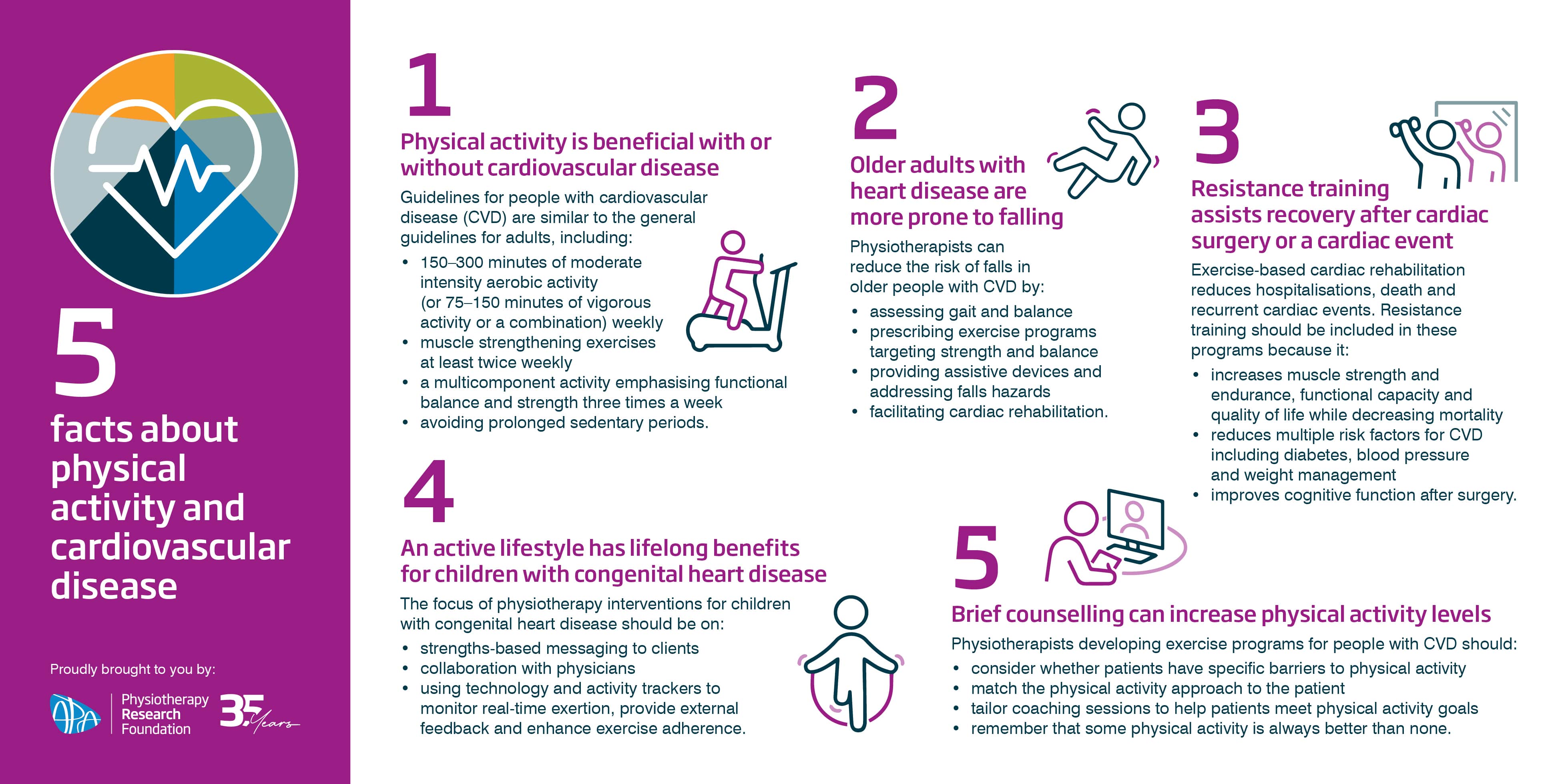Five facts about physical activity and cardiovascular disease
Physical activity provides significant health benefits with or without cardiovascular disease, and the guidelines for people with cardiovascular disease (CVD) are similar to the general guidelines for adults. Physical exercise for those with CVD also helps reduce the risk of falls in older people and reduces hospitalisations and recurrent cardiac events. Physiotherapists need to be aware of any specific barriers to physical activity, but remember that some activity is always better than none.
The Physiotherapy Research Foundation (PRF) has highlighted key messages from the 5 facts article featured in the May edition of InMotion and produced this infographic.
Click on the image below to access a printable A3 file.
About the authors.
Dr Brea Kunstler APAM MACP is a behaviour change scientist at BehaviourWorks Australia, an APA Research Physiotherapist and a co-convenor of the APA advisory group Physiotherapists for Physical
Activity. She has a PhD in physical activity behaviour change and provides online coaching services.
Professor Lucy Lewis APAM is the deputy director of the Caring Futures Institute at Flinders University, with a focus on building research capacity and transforming the workforce. Lucy’s research involves promoting physical activity throughout life and co-designing opportunities for intergenerational healthy lifestyle behaviours.
Ingrid Lin is a PhD candidate at Macquarie University and works as a physiotherapist and research assistant. Her research interests include physical activity and health promotion by physiotherapists, particularly for older adults and those with chronic health conditions.
Ty Ferguson is a research associate at the University of South Australia and a clinician and clinical educator in paediatric physiotherapy. He has recently completed a PhD in public health (awaiting conferral), exploring the annual rhythms in physical activity, sedentary behaviour and sleep of Australian adults.
Associate Professor Nicole Freene is a clinical physiotherapist, an academic at the University of Canberra and co-chair of the Asia-Pacific Society for Physical Activity’s special interest group Physical Activity in Healthcare. Her research focuses on increasing physical activity levels and decreasing sedentary behaviour in adults.
This infographic is a Physiotherapy Research Foundation (PRF) initiative supported by FlexEze – partner of the PRF.


